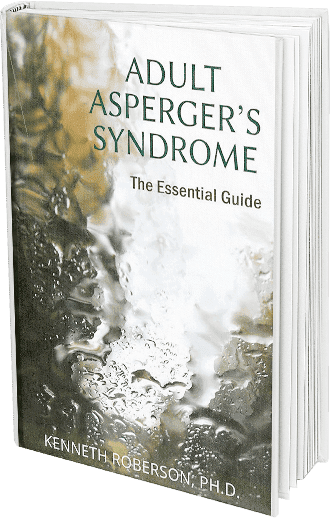
Autism Spectrum Disorder is a disorder that affects how someone processes certain information, the most significant type of information involving social interaction and communication. Adults with Autism Spectrum Disorder have:
- Trouble recognizing other people’s feelings and understanding nonverbal cues. They tend to be literal and misunderstand metaphorical communication like puns, riddles or figures of speech.
- Difficulty planning, organizing, thinking and acting flexibly, and controlling the temptation to speak or act in the moment.
- Problems expressing themselves, following conversations, and speaking with the right volume and inflection.
- Struggles interacting with, and relating to, people in a mutually satisfying way.
- Intense and narrow interests that absorb much of their time and attention.
Interestingly, these features of Autism Spectrum Disorder are similar to those of people with Non-Verbal Learning Disabilities (NVLD), which also include:
- Difficulty recognizing and processing nonverbal cues — body language, facial expression, and the nuances of conversation.
- Poor visual, spatial, and organizational skills.
- Poor motor coordination.
Like those with Autism Spectrum Disorder, adults with NVLD don’t always appreciate when they have insulted, upset, or frustrated other people. The difficulty they have recognizing body language, including facial expressions in other people make it hard for them to adjust their behavior when that behavior is creating social discomfort. They carry on with offensive or inappropriate behavior, failing to recognize the impact this is causing and, as such, are often considered rude, offensive, or odd.
Furthermore, adults with NVLD, like those with Autism Spectrum Disorder, have trouble not only reading other people’s behavior accurately but their own as well. They blame others for misunderstandings or conflict rather than acknowledging their own responsibility.
Literal thinking or difficulty “reading between the lines” is also common to both sets of adults. Given that it is hard for them to recognize how subtle differences in the their actions can lead to very different consequences, it’s not surprising that the nuances of language escape their comprehension.
Changes in routines and transitions from one setting to another can also be troubling to both groups of adults. Since thinking in a flexible manner and guiding their behavior in accordance with long-range goals is typically difficult for them, the urge to react to change can be hard to resist.
Not surprisingly, given the language and impaired social judgement for both adults with Autism Spectrum Disorder and those with NVLD, success with friendships and intimate relationships is complicated and is, in fact, a defining feature of both conditions.
Is Autism Spectrum Disorder and Non-Verbal Learning Disorder One and the Same?
This is a controversial question. Most experts believe they are different, for several reasons. Adults with Autism Spectrum Disorder have fixed, narrow, repetitive interests and those with NVLD tend not to. Adults with Autism Spectrum Disorder are typically visual thinkers and learners, with stronger math than writing skills, while those with NVLD learn best through listening, are fairly good at keeping attention in conversations, and are better at reading and spelling than math and analytic skills.
While these distinctions are generally accurate, it’s my opinion that the differences are relatively minor and that the boundaries between Autism Spectrum Disorder and Non-Verbal Learning Disabilities are less than distinct.
If this is true, one wonders what causes what, when it comes to Autism Spectrum Disorder. Rather than a distinct condition a person is born with that has secondary effects on learning as the person develops, could it be that Autism Spectrum Disorder is the product of a learning problem?
Where this to be the case, it would cast a whole different light on the fundamental nature of Autism Spectrum Disorder and what causes it.
You can read more about similar topics here




